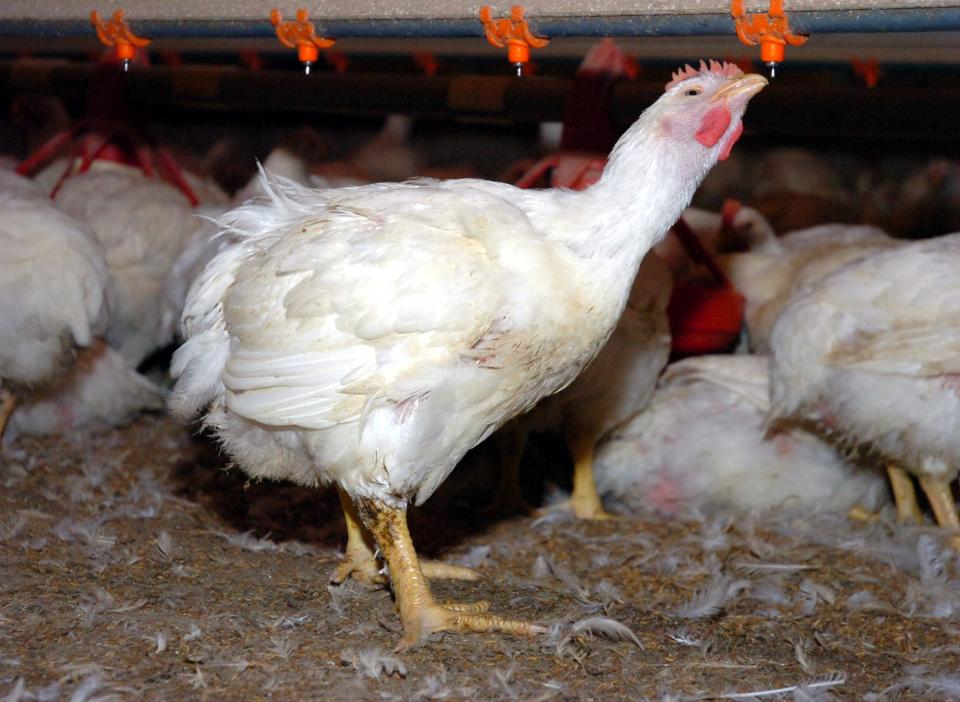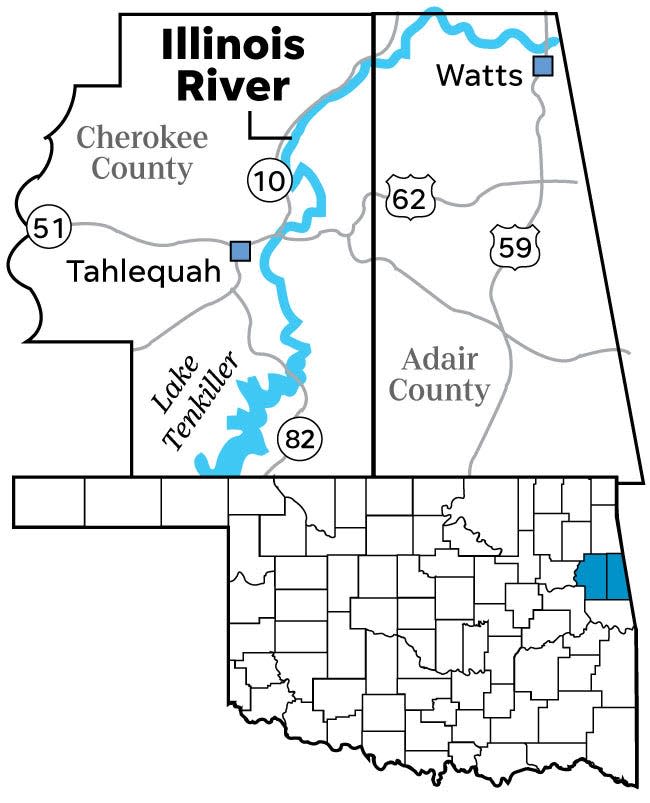Federal judge finds poultry companies' chicken poop polluted Oklahoma's scenic rivers
A U.S. District Court Judge has ruled that nine poultry companies operating across parts of western Arkansas and eastern Oklahoma have generated chicken manure used as fertilizer that's caused excessive phosphorus runoff polluting Lake Tenkiller, the Illinois River and other scenic waterways in Oklahoma.

The ruling by Judge Gregory K. Frizzell in the Northern District of Oklahoma's federal courts is a landmark in a case that has been active since 2005.
While it doesn't bar the use of chicken poop as fertilizer, it does tell the defendants they shouldn't spread any more fertilizer than whatever crop is being grown actually can use.
The judge has given until March 17 for defendants to work out an agreement on how to remedy the situation with Oklahoma, its attorney general, and energy and environment secretary.
Frizzell said he will order his own remedies if Oklahoma can't reach an agreement with Tyson Foods Inc., Tyson Poultry Inc., Tyson Chicken Inc., Cobb-Vantress Inc., Cal-Maine Foods Inc., Cargill Inc., Cargill Turkey Production, George's Inc., George's Farms Inc., Peterson Farms Inc. and Simmons Foods Inc.
What the judge determined
In the ruling, Frizzell found that each defendant:

Maintains significant poultry operations in the Illinois River watershed, which covers more than 1 million acres in parts of northeastern Oklahoma and northwestern Arkansas. Slightly more than half of the watershed — about 576,030 acres — is located in Oklahoma.
Maintains control over virtually all essential aspects of poultry production, including the activities of their contract growers.
Generated, and — with the exception of defendants Peterson and Cal-Maine — continues to generate significant quantities of phosphorus-rich poultry waste.
Applies a majority of the poultry waste on lands within the watershed that creates an environmentally significant amount of phosphorus runoff that has and still is a significant source of harm to watershed waters.
Has known and/or has had reason to know that the application of poultry waste as a fertilizer to watershed lands were and are a threat.
Frizzell ruled phosphorus concentrations in watershed streams and rivers and Lake Tenkiller are elevated beyond natural or background levels, prompting significant increases in algae growths that impair water quality by decreasing its clarity and limiting its beneficial uses, both for aquatic wildlife and human needs.
The judge backed Oklahoma's arguments that defendants violated state and federal nuisance statutes, Oklahoma's law barring pollution of its air, land or waters, and that they should be penalized accordingly.
"The Environmental Protection Agency has recognized that nutrient pollution caused by phosphorus is one of America’s most widespread, costly, and challenging environmental problems," Frizzell wrote. "The parties are hereby directed to meet and attempt to reach an agreement with regard to remedies to be imposed in this action. In the event the parties are unable to reach an accord, the court shall enter judgment."
Ruling serves as mile-marker in case ongoing since 2005
Oklahoma brought the case against 14 defendants in 2005 after years of earlier attempts to resolve phosphorus-related pollution issues failed between the state, the companies and Arkansas state officials.

As early as 2002, Oklahoma and Arkansas state officials clashed as Oklahoma's Water Resources Board set tough new phosphorus standards for the watershed.
Efforts to reach a negotiated settlement between the two states became water over a dam later that same year after Oklahoma submitted a rule limiting phosphorus contamination within its scenic river waters to the U.S. Environmental Protection Agency.
Then-Oklahoma Attorney General Drew Edmondson predicted in late 2004 the issue was headed to federal court after reviewing poultry companies' prelawsuit settlement offers to his office that he said didn't include what Oklahoma wanted.
Similar negotiations between Oklahoma and Arkansas involving phosphorus levels in discharges into the watershed from wastewater treatment plants in both states were more successful, though, keeping that aspect of the argument out of federal courts.
A look back:Both sides using PR in chicken-litter war
On Thursday, Edmondson said it appears advances achieved through that agreement were diminished by the continued growth in numbers of poultry farms operating and the amounts of chicken poop spread as fertilizer across lands within the watershed.
"We have more chickens in the watershed than ever," said Edmondson, who stressed he no longer has any official involvement in the case. "These companies are responsible for their growers, and they will have to take action."
Oklahoma attorney general celebrates ruling
Attorney General Gentner Drummond, who took office Jan. 9, called Frizzell's ruling "a long time coming."
"It is important to note that in the intervening years since the filing of the suit, the poultry industry has made (or is willing to make) strong improvements in waste disposal," Drummond said this week, adding that Oklahoma would thoroughly review the judge's decision as it prepares to work with the companies going forward.
“This is a great and historic day for Oklahoma,” Drummond said.
This article originally appeared on Oklahoman: Ruling: Pollution caused by chicken poop attributed to poultry industry

